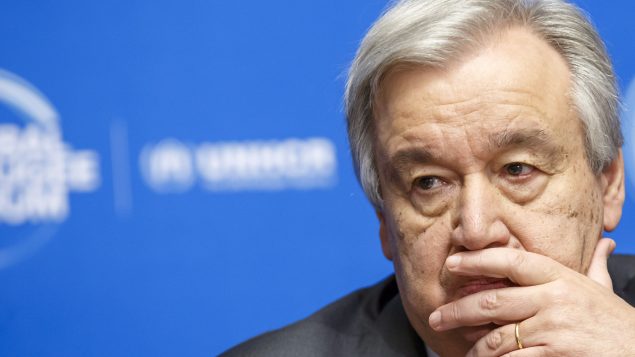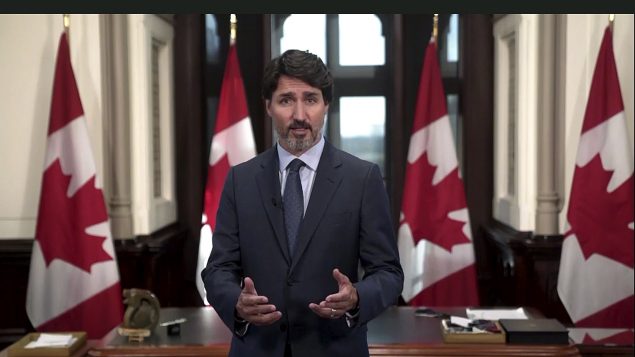Canadian Prime Minister Justin Trudeau co-hosted a virtual meeting of world leaders on Monday as the United Nations warned that a looming debt crisis risks sending the global economy “spiralling deeper into the worst recession since the Great Depression.”.
The high-level meeting was organized by UN Secretary General Antonio Guterres, Trudeau and Jamaican Prime Minister Andrew Holness to “underscore the urgency of the need for bolder and concrete action to provide liquidity and address debt vulnerability in developing countries,” said a statement from the Prime Minister’s Office.
The UN says the world needs to take action to help governments in lower-income countries gain access to cash and to help ease their debt burdens.
“We are on the verge of a debt crisis. Six countries have already defaulted. One-third of emerging market economies are at high risk of fiscal crisis. And the situation is even worse for least-developed and low-income countries,” said Guterres.
According to statistics presented at the virtual meeting, COVID-19-related economic shocks have already led credit rating agencies to downgrade the credit worthiness of 42 countries since the start of the pandemic, including six developed countries, 27 emerging market economies, and nine least developed and low-income countries.
More credit and targeted debt relief
The international community needs to allocate new special drawing rights (SDR) to poorer countries, Guterres said.
The SDR is a financial instrument created by the International Monetary Fund (IMF) in 1969 that operates as a supplement to the existing money reserves of member countries.
Technically each member country gets a share of the reserves of this artificial currency that it could draw upon when its own currency reserves are depleted.

FILE – In this Dec. 17, 2019 file photo, U.N. Secretary-General Antonio Guterres attends the UNHCR – Global Refugee Forum at the European headquarters of the United Nations in Geneva, Switzerland. (Salvatore Di Nolfi/Keystone via AP, File)
The UN chief urged wealthy countries with strong reserve positions to reallocate their unused SDRs to countries that need it the most. He also called on G20 countries to extend their debt service suspension initiative into next year and expand it to include all highly indebted, vulnerable middle-income countries affected by the crisis.
Since it took effect on May 1, 2020, the initiative has delivered about $5 billion US in relief to more than 40 eligible countries. In all, 73 countries are eligible for a temporary suspension of debt-service payments owed to their creditors, according to the World Bank.
Wealthy countries like Canada need to provide additional, targeted debt relief and to tackle long-standing weaknesses in the international debt architecture, Guterres said.
“Otherwise, we risk spiralling deeper into the worst recession since the Great Depression,” he said.
‘A new debt architecture’
Holness said the COVID-19 pandemic has wreaked tremendous havoc on lives, livelihoods, and the global economy.
“In addition to providing critical debt relief and liquidity support, we must create a new international debt architecture that ensures sustainability and encourages the private sector to integrate sustainability into its investment decisions to ensure a faster, stronger and more resilient recovery,” Holness said.
Trudeau said the international community must come together to “protect people, save lives, and defeat COVID-19.”
“Our progress has been remarkable, but we know we can’t defeat this virus and build back better at home unless all countries have the resources to respond to and recover from this global challenge,” Trudeau said.
“Only through a coordinated global response, can we address the impacts of the pandemic and create jobs, economic growth, and new opportunity for our people and businesses.”







For reasons beyond our control, and for an undetermined period of time, our comment section is now closed. However, our social networks remain open to your contributions.